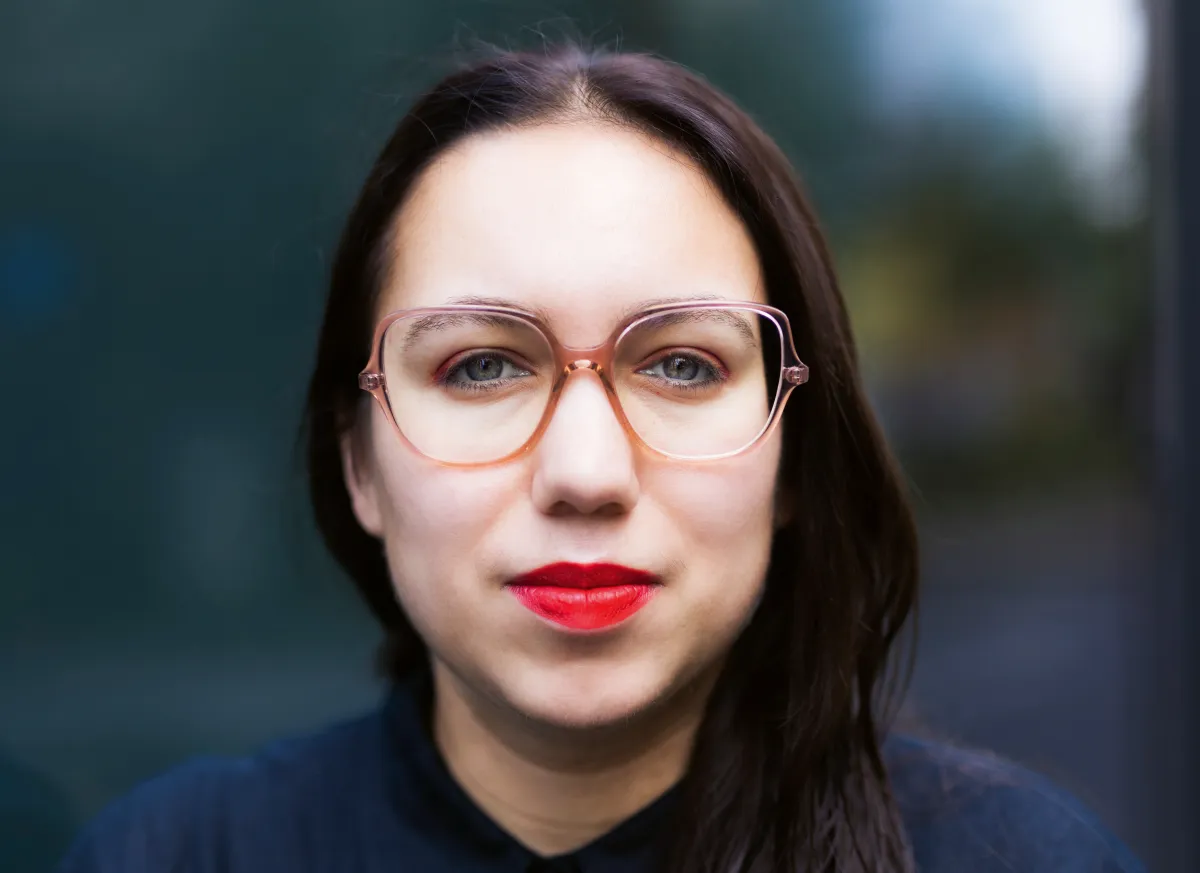Have a future

LR Lyrik Kolumne Galante Lügen: einen bodensatz zucker | In der Sache Ronya Othmann | Von Alexandru Bulucz
The series of readings in Berlin prisons, initiated by Martin Jankowski in 2002, has become an integral part of the Berlin International Literature Festival (ILB). Writers such as Kiran Nagarkar, Feridun Zaimoglu, and most recently Deniz Utlu, have already been "in jail". This year, Ronya Othmann read in the open prison in Berlin Spandau, moderated by Thorsten Dönges.
The prison is approached by a path through some garden allotments in full late-summer bloom. A contrast to the function of the place behind it? It is a prison after all. Or, alternatively, an achievement of the rule of law, open to the outside and with no unpleasant views.
Ambivalence can also be found in all of Ronya Othmann's works. In her first novel Summers (2020), she depicts a peaceful setting, the Syrian village where Leyla is sent to visit her grandmother every summer as a child: gardens, animals, surrounded by fields. But from the start, even before the protagonist's father begins to describe his prison experience in detail, the threat of possible arrests and worse, of the Ferman (genocide against Yazidis), is always present. Leyla's father and numerous relatives and acquaintances, Yezidis (Ezidis), Kurds ... in Syria, in Turkey ... can end up behind bars simply for their origin, their religion, their language, or for a wrong word, through the sheer arbitrariness of power or betrayed by local informers.
In Summers, Leyla's father only describes his imprisonment in Turkey in more concrete terms later in the text. He narrowly escapes further arbitrariness and torture. As he tells his story, he addresses his daughter directly, appealing to her repeatedly to listen and thus be witness. - Listen carefully! As Beata Umubyeyi Mairesse impressively emphasised in her opening speech at this year's literature festival against the backdrop of another genocide( in Rwanda) - the question of the narratability of horror and the assumption of testimony.
LR Belletristik review of Vierundsziebzig: Auch die Sprache ist eine Waffe by Christoph Nick
Ronya Othmann opens the event with her poems from die verbrechen, 2021. Beauty and cruelty eerily juxtaposed: a picnic at a popular destination for excursions in the Shingal Mountains - both the last straw for Yazidis and the scene of the cruel genocide by IS. The inmates and the few external audience members listen attentively and pause on the phrase "forced steps" - an apt image for Ronya Othmann's tentative approach. Her fictional adaptations and her new, superficially more documentary work Vierundsiebzig (2024) show that approaching and writing about crime, especially the Ferman, is simply not and cannot be captured by a single genre or style of writing. The memories, the collection of fragments, the confrontation with what has happened require multiple perspectives, tools or even "placeholders".
There's a clear path leading from Leyla in 'Summer', written in the third person, to the 'you' in the poems and - for the first time in Vierundsziebzig - to an 'I' that struggles for order, accuracy and predictability: researching, writing.
The author has been writing with a 'you' in mind since she was a teenager: she knew that her sister was reading her diary. The "you" in her poems is an expression of an internal discourse, but also addresses multiple crimes: against other groups, against humanity, against nature. Finally, in Vierundsiebzig, an 'I' speaks that struggles for perspective and has to give order to the overwhelming facts about the crimes against Yazidis. On the one hand, the ego wants to hide itself; on the other, it is always thrown back on itself. The fact that in Vierundsiebzig, she allows sources to speak comes from a demand for transparency. Othmann admits that she found it difficult to classify: "Every thing I read was somehow valuable." Or: "The ego is a witness and yet it has no language." - Despite journalistic experience and training at the Leipzig Institute of Literature, she acknowledges this. However, the absence of language is integrated into the text, the 'I' orders and intersperses the text with the formula "I write: ..." A looping, non-chronological approach. This search for a precise form both characterises the reading and sustains it, as Thorsten Dönges sums up. At the end of the excerpt read from Vierundsiebzig, the following question arises: What can justice for the victims possibly look like? However, there was not much time left for a further discussion with the prisoners, but Othmann emphasised that it was about evidence, documentation, and yes, also about punishment.
As I leave the prison, the mumbled reaction of a prisoner echoes, "shoot those responsible for this" - meaning those responsible for the atrocities committed by IS against the Yazidis. This crime horrified him again spontaneously. Other detainees were keen to point out that Muslim and Arab groups, together with Kurds and Yazidis, had also put up resistance against IS.
The author's diverse perspectives and approaches to getting "close to the crimes" in her writing encourage discussion. Ultimately,however, added Ronya Othmann, it is not about collective punishment or revenge, but about each individual, about restoring security and "having a future".



